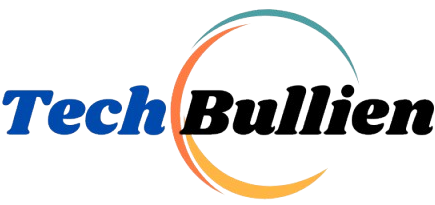Introduction
Student.education2025: Education is undergoing a rapid transformation, driven by technological advancements, innovative teaching methodologies, and evolving student needs. The future of learning is not just about acquiring knowledge but also about applying it in real-world scenarios. In this article, we explore the evolving landscape of education and how student.education2025 is shaping the learning experience for students worldwide.
Table of Contents
The Evolution of Education in the Digital Age
The Shift from Traditional to Digital Learning
The traditional classroom model is gradually giving way to digital learning platforms. With the integration of artificial intelligence (AI), augmented reality (AR), and virtual reality (VR), student.education2025 aims to provide an immersive and engaging learning experience.
The Role of Online Education
Online education has seen exponential growth, with platforms offering diverse courses in various disciplines. The accessibility and affordability of digital learning have made it a popular choice among students. student.education2025 envisions a future where digital classrooms become the primary mode of learning, complemented by interactive tools.
Key Trends Shaping student.education2025
1. Personalized Learning Experiences
With AI-powered tools, students can now receive customized learning experiences based on their strengths and weaknesses. student.education2025 is set to revolutionize education by enabling teachers to design personalized curriculums tailored to individual learning needs.
2. Integration of Gamification
Gamification in education enhances student engagement and motivation. Platforms using gamified elements such as leaderboards, badges, and rewards create an interactive learning environment, making education more enjoyable.
3. The Rise of Hybrid Learning Models
Hybrid learning, which combines online and offline education, is becoming the new norm. student.education2025 focuses on providing students with flexible learning options, ensuring they can switch between in-person and virtual classes seamlessly.
The Role of Artificial Intelligence in Education
AI-Powered Learning Assistants
AI-driven chatbots and virtual assistants are transforming education by providing instant responses to student queries. These tools help students navigate complex topics and enhance their learning experience.
Automated Grading and Feedback
Automated assessment tools are reducing the workload of educators by providing instant grading and feedback. student.education2025 promotes the use of AI in grading, ensuring fair and unbiased evaluations.
The Impact of Virtual and Augmented Reality
Enhancing Classroom Interactions
VR and AR are redefining the way students interact with their subjects. Virtual labs, 3D models, and immersive simulations provide hands-on learning experiences, making abstract concepts easier to understand.
Real-World Simulations
Subjects such as medical science, engineering, and architecture benefit from real-world simulations. student.education2025 encourages the use of VR in these fields to enhance practical learning experiences.
The Significance of Soft Skills in Future Education
Critical Thinking and Problem-Solving
Employers today value skills such as critical thinking, problem-solving, and creativity. student.education2025 emphasizes the integration of soft skills into curriculums to prepare students for future career challenges.
Communication and Collaboration
With the rise of remote work, effective communication and collaboration skills are essential. Schools and universities are incorporating teamwork-based projects and peer-to-peer learning to enhance these abilities.
The Role of Blockchain in Education
Secure Credentialing and Digital Certificates
Blockchain technology ensures secure storage and verification of academic credentials. student.education2025 envisions a future where degrees and certificates are stored on blockchain networks, reducing fraud and improving transparency.
Decentralized Learning Platforms
Blockchain enables decentralized education systems, giving students greater control over their learning paths. This promotes lifelong learning and skill development without reliance on traditional institutions.
The Importance of Mental Health and Well-Being in Education
Addressing Student Stress and Anxiety
With increasing academic pressures, mental health support is crucial. student.education2025 advocates for incorporating wellness programs into educational institutions to ensure students receive the necessary emotional and psychological support.
Mindfulness and Stress Management Programs
Meditation, yoga, and mindfulness exercises are being introduced in schools to help students manage stress effectively. These initiatives contribute to overall well-being and academic performance.
Challenges and Solutions in the Future of Education
Digital Divide and Accessibility Issues
Despite advancements, the digital divide remains a significant challenge. student.education2025 focuses on bridging this gap by ensuring equal access to technology for all students, regardless of their socio-economic backgrounds.
Data Privacy and Security Concerns
With increasing reliance on digital platforms, protecting student data is a priority. Institutions must implement robust cybersecurity measures to safeguard sensitive information.
Conclusion
Education is evolving at an unprecedented pace, and student.education2025 is at the forefront of this transformation. With innovations in AI, VR, blockchain, and personalized learning, the future of education promises to be more engaging, accessible, and inclusive. By embracing these changes, students can look forward to a dynamic and enriched learning experience, equipping them for the challenges of tomorrow.

